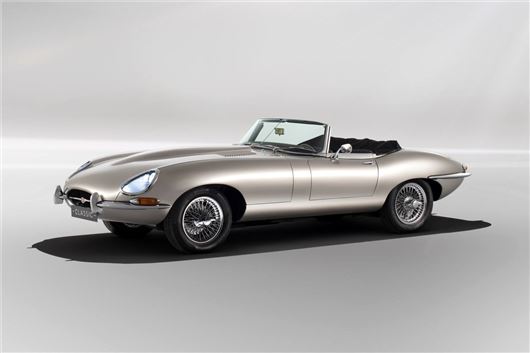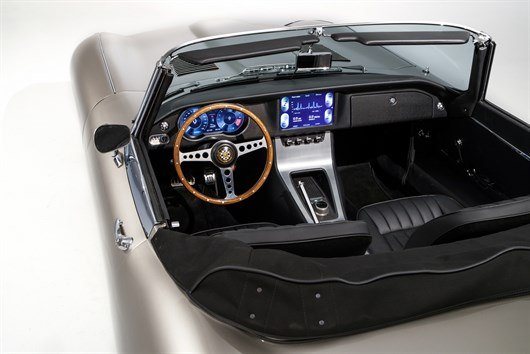Electric classics ‘must not be considered historic vehicles’ says FIVA

Classics that have been converted to run on an electric powertrain should not be considered historic vehicles, according to a group that aims to protects the heritage of old cars.
FIVA (the Fédération Internationale des Véhicules Anciens or international federation of historic vehicles) says it cannot promote the use of modern EV components (motors and batteries) to replace a historic vehicle’s powertrain to owners or regulators.
Tiddo Bresters, FIVA’s vice-president of legislation, says, ‘It is not, in our opinion, the shape or body style of a vehicle that makes it ‘historic’, but the way in which the entire vehicle has been constructed and manufactured in its original form.’
Converting classic cars from internal combustion engines to battery power is becoming increasingly popular. Over the past few years, specialists have converted the Mini, MGB, Volkswagen Beetle, and Jaguar E-type (pictured).

Electrifcation allows owners to retain the classic appearance of the vehicle while meeting modern environmental standards, allowing them access to low-emission zones and reducing their carbon footprint. There are also additional benefits such as increased performance and improved fuel economy.
But FIVA - which is dedicated to the preservation, protection and promotion of historic vehicles - says electrifying a classic doesn’t comply with its definition of a historic vehicle, nor does it support the goal of preserving historic vehicles and their related culture. In FIVA’s view, converted cars are can no longer be historic vehicles - unless they are subject only to ‘in period’ changes.
According to FIVA, a historic vehicle is: ‘a mechanically propelled road vehicle’ that is at least 30 years old; preserved and maintained in a historically correct condition; not used as a means of daily transport; and part of our technical and cultural heritage.
FIVA’s Bresters adds, ‘If any owner, motor engineer or manufacturer chooses to make such conversions to a historic vehicle, FIVA would strongly recommend that any changes are reversible, with all the original components marked and safely stored.
‘In this way, the vehicle may – if so desired in the future – be returned to its original state and may once again become a historic vehicle.’
Compare classic car insurance quotes and buy online. A friendly service offering access to a range of policies and benefits.


 Keith Moody
Keith Moody
 NEC classic motor show 2020 postponed due to Covid 19 concerns
NEC classic motor show 2020 postponed due to Covid 19 concerns
 Classic car auction house Coys goes into administration
Classic car auction house Coys goes into administration
 Motor racing great Sir Stirling Moss dies aged 90
Motor racing great Sir Stirling Moss dies aged 90
 Alfa Romeo anniversary races set for Silverstone
Alfa Romeo anniversary races set for Silverstone
 Government to make E5 fuel available for classic owners
Government to make E5 fuel available for classic owners
 Plans to introduce cleaner fuel could damage more than a million classic cars
Plans to introduce cleaner fuel could damage more than a million classic cars
 Top 10: Classic cars from the Gulf motor racing heritage collection
Top 10: Classic cars from the Gulf motor racing heritage collection


